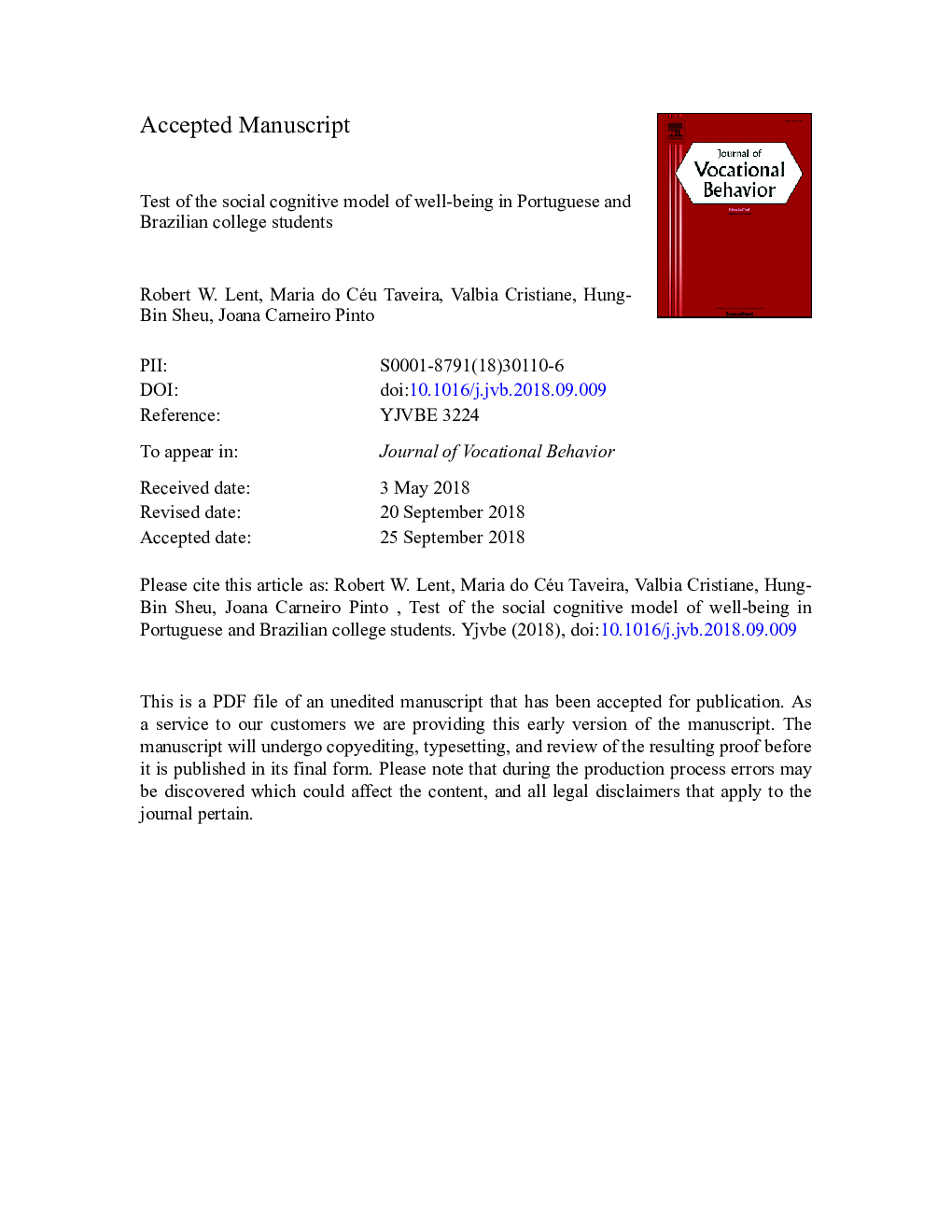| Article ID | Journal | Published Year | Pages | File Type |
|---|---|---|---|---|
| 11027654 | Journal of Vocational Behavior | 2018 | 32 Pages |
Abstract
Lent and Brown's (2006, 2008) social cognitive model of work well-being was tested in Brazilian (Nâ¯=â¯349) and Portuguese (Nâ¯=â¯357) college student samples. Participants completed Portuguese language measures of academic domain self-efficacy, environmental support, goal progress, and satisfaction, along with measures of global positive affect and life satisfaction. Results of latent variable path analyses indicated that the model fit the data well in the full sample as well as in separate sub-samples by country and gender. The model also accounted for substantial portions of the variance in academic and overall life satisfaction, and nearly all of the path coefficients were statistically significant. Contrary to expectations, however, goal progress did not contribute uniquely to the prediction of either academic domain or global life satisfaction. We consider implications of the findings for research and practice on the social cognitive well-being model.
Keywords
Related Topics
Social Sciences and Humanities
Business, Management and Accounting
Marketing
Authors
Robert W. Lent, Maria do Céu Taveira, Valbia Cristiane, Hung-Bin Sheu, Joana Carneiro Pinto,
